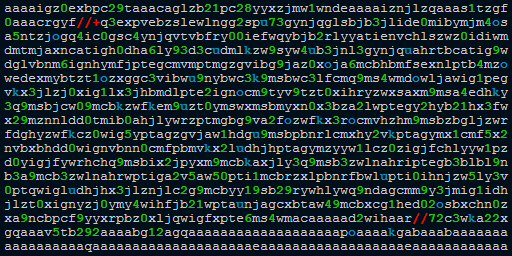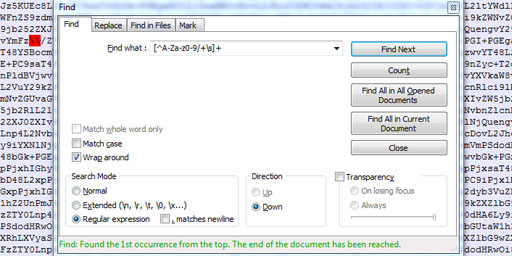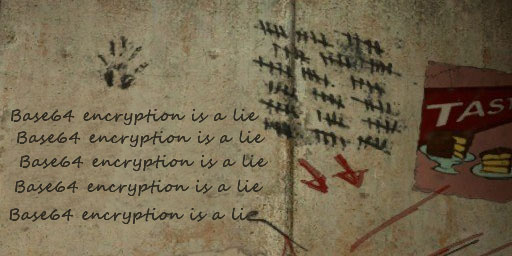Python Base64 Decode
To decode Base64 to original data, Python provides the b64decode function of the base64 module. In addition, this module also provides the b64encode function, as well as other useful functions to decode Base64 strings using several algorithms specified in RFC 3548.
Usage:
b64decode(b64)- Discards all invalid characters fromb64and decodes it from Base64 to original datab64decode(b64, altchars)- Replacesaltcharswith+/fromb64and decodes it from Base64 to original datab64decode(b64, altchars, validate)- Ifvalidateis set toTruetheb64must contain only valid Base64 characters
Arguments:
b64(required string) - The Base64 value that should be decodedaltchars(optional string; defaultNone) - Two characters that should replace “+” and “/”validate(optional bool; defaultFalse; added in Python 3) - Allows to decode only valid Base64 values
Return Values:
str- On success, it returns the original data
Supported Versions:
- Python 2.4+
Changelog:
-
Python 3.1:
- Adds the
decodebytesfunction, which Base64 values tobytes - The function
decodestringis deprecated
- Adds the
-
Python 3.3:
- ASCII-only Unicode strings are now accepted by the decoding functions of the modern interface
-
Python 3.4:
- Adds the
a85decodefunction, which decodes Ascii85 to original data - Adds the
b85decodefunction, which decodes Base85 to original data - Any bytes-like objects are now accepted by all decoding functions in the
base64module
- Adds the
Example #1 (print the result):
from base64 import b64decode
b64 = 'Z3VydQ=='
print(b64decode(b64)) #-> 'guru'Example #2 (print unicode string on Python 3):
from base64 import b64decode
b64 = '4oKsMTAw'
print(b64decode(b64).decode('utf-8')) #-> '€100'Example #3 (decode data from a custom Base64 alphabet):
from base64 import b64decode
b64 = 'PDw_Pz8-Pg=='
print(b64decode(b64)) #-> '<<<���'
print(b64decode(b64, '-_')) #-> '<<???>>'Example #4 (validate characters on Python 3):
from base64 import b64decode
b64 = 'Z 3 V y d Q=='
print(b64decode(b64)) #-> b'guru'
print(b64decode(b64, None, True)) #-> binascii.Error: Non-base64 digit foundExample #5 (errors for incorrectly padded Base64 values):
# Python 2.7: TypeError: Incorrect padding
# Python 3.6: binascii.Error: Incorrect padding
b64decode('a=b')Example #6 (TypeError on missing required argument):
# Python 2.7 - b64decode() takes at least 1 argument (0 given)
# Python 3.6 - b64decode() missing 1 required positional argument: 's'
b64decode()Example #7 (TypeError on wrong argument type):
# Python 2.7 - a2b_base64() argument 1 must be string or buffer, not int
# Python 3.6 - argument should be a bytes-like object or ASCII string, not 'int'
b64decode(123) What is "aaaaigz0...my4xmda="?
What is "aaaaigz0...my4xmda="? Validate Base64 using Notepad++
Validate Base64 using Notepad++ Base64 encryption is a lie
Base64 encryption is a lie
Comments (25)
I hope you enjoy this discussion. In any case, I ask you to join it.
WVcxdGFXdzZMeTltZUhwMExtZHpMM2xvWlhkNGF5OUVPRXN6WVVKclNpTkJRVU5aWlU5bE4zSmZiV2xqZVU1dGJqTlBRVkJ3123188:8681b78514365ed639ae6620e337c6f70a8b87dca580dd3ae9eebf876096b116:123188
123188:0000:123188
How can i extract readable text?
b64_string = "PASTE_EL_BASE64_AQUÍ"
with open('Tablero_Jose_Naicipa_Mejorado.xlsx', 'wb') as f:
f.write(base64.b64decode(b64_string))